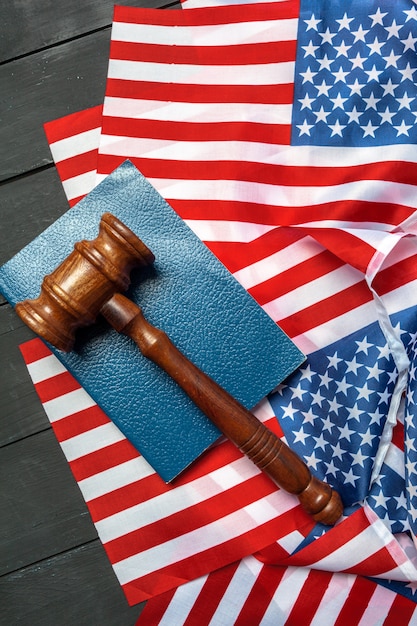Proposed Constitutional Amendment: Free Speech Consequences

The potential consequences of a proposed constitutional amendment on free speech could range from redefining protected speech to altering the balance between individual rights and government regulation, impacting various aspects of public discourse.
Understanding what are the potential consequences of the proposed constitutional amendment on free speech is crucial for every citizen. This article dives deep into the potential ripple effects on our society.
Background on Constitutional Amendments and Free Speech
Constitutional amendments are fundamental changes to a nation’s governing document, and their impact can be far-reaching. When these amendments touch on free speech, as protected by the First Amendment in the United States, the consequences can be particularly significant and controversial. Understanding the amendment process and the existing protections is crucial before considering any proposed changes.
The First Amendment to the U.S. Constitution guarantees several fundamental rights, including freedom of speech, religion, the press, assembly, and the right to petition the government. It prevents the government from making laws that would abridge these freedoms. However, this protection is not absolute, and the Supreme Court has recognized certain limitations.
The Amendment Process
The amendment process is outlined in Article V of the Constitution and involves two main steps: proposal and ratification. Here’s a brief overview:
- Proposal: An amendment can be proposed either by a two-thirds vote of both the House of Representatives and the Senate, or by a convention called by two-thirds of the state legislatures.
- Ratification: Once proposed, an amendment must be ratified by three-fourths of the states, either through their legislatures or by conventions called for the purpose.
Given the high thresholds for both proposal and ratification, amending the Constitution is a difficult and deliberate process, intended to ensure broad consensus before changes are made.

In conclusion, before diving into the specifics of the potential consequences, it’s essential to understand the robust protections already in place and the rigorous process required to alter them. This provides a foundation for evaluating any proposed changes to free speech.
Potential Redefinition of Protected Speech
One of the most significant potential consequences of a proposed constitutional amendment affecting free speech is the redefinition of what speech is actually protected. Amendments could narrow or broaden the scope of protected speech, leading to significant impacts on public discourse.
Currently, the Supreme Court has established various categories of speech that receive different levels of protection. Some categories, like political speech, receive the highest level of protection, while others, like obscenity or incitement to violence, receive little to no protection. A new amendment could alter these classifications.
Narrowing the Scope
An amendment could seek to narrow the scope of protected speech by:
- Defining hate speech: Although the U.S. currently lacks a legal definition of hate speech, an amendment could define it and remove its protection under the First Amendment.
- Regulating online content: With the rise of social media, there have been calls to regulate online content. An amendment could allow for greater regulation of speech on digital platforms.
- Limiting campaign finance: Some argue that money is speech and that campaign finance regulations infringe on free speech rights. An amendment could clarify or modify the extent to which campaign finance is protected.
Conversely, an amendment could broaden the scope of protected speech by:
- Protecting artistic expression: An amendment could provide greater protection for artistic expression, even if it is considered offensive by some.
- Expanding whistleblower protections: Whistleblowers play a crucial role in exposing government misconduct. An amendment could strengthen protections for whistleblowers by ensuring they can speak freely without fear of reprisal.
In conclusion, depending on its language, a constitutional amendment could dramatically alter the landscape of protected speech, impacting everything from political discourse to artistic expression.
Impact on Political Discourse and Activism
The ramifications of amending free speech protections also extend to political discourse and activism. The ability to freely express political views, organize, and protest are cornerstones of a democratic society. Altering these rights could have profound effects on how citizens engage with their government.
The First Amendment currently protects a wide range of political activities, including campaign donations, political advertising, and public protests. An amendment could either restrict or enhance these protections.

Potential Restrictions
Restrictions could manifest in several ways:
- Limits on Protests: An amendment could impose stricter regulations on public protests, limiting where and when protests can occur, and potentially restricting the types of messages that can be displayed.
- Campaign Finance Regulations: Modifying the understanding of money as speech could lead to more stringent campaign finance regulations, affecting the ability of individuals and organizations to spend money on political campaigns.
Enhancements to Political Speech
On the other hand, an amendment could enhance political speech by:
- Protecting Anonymous Speech: Ensuring the right to speak anonymously, which can be crucial for dissenting voices, particularly in authoritarian regimes.
- Guaranteeing Access to Public Forums: Ensuring that individuals and groups have access to public forums and spaces to express their views.
In conclusion, the potential impact on political discourse and activism is significant. Any changes to free speech protections must be carefully considered to ensure that they do not unduly restrict the ability of citizens to participate in the democratic process.
Effects on Journalism and Media
Journalism and media play a vital role in informing the public and holding those in power accountable. Any changes to free speech protections have the potential to significantly affect the ability of journalists to report on matters of public interest.
The First Amendment’s guarantee of freedom of the press is crucial for ensuring that journalists can investigate and report on issues without fear of government censorship or reprisal. However, this protection is not absolute, and there are ongoing debates about the scope of press freedom.
Potential Challenges
An amendment could pose challenges to journalism and media in several ways:
- Increased Libel Liability: An amendment could make it easier for public figures to sue journalists for libel, potentially chilling investigative reporting.
- Restrictions on Leaks: An amendment could impose stricter penalties for leaking classified information to the press, making it more difficult for journalists to report on government activities.
Potential Protections
Conversely, an amendment could strengthen protections for journalism and media by:
- Shield Laws: Enacting federal shield laws to protect journalists from being forced to reveal their sources.
- Clarifying Digital Rights: Ensuring that journalists have the same protections online as they do in traditional media.
In conclusion, the future of journalism and media is closely tied to the protection of free speech. Striking the right balance between press freedom and other societal interests is essential for maintaining a well-informed and democratic society.
Implications for Education and Academia
The potential consequences of amending free speech protections also extend to education and academia. Free speech is a cornerstone of academic freedom, allowing for the open exchange of ideas and the pursuit of knowledge.
In educational settings, students and faculty often engage in discussions about controversial topics. An amendment could affect the extent to which these discussions are protected from censorship or regulation.
Concerns and Impacts
Here are some potential concerns:
- Censorship of Curriculum: An amendment could allow for greater censorship of curriculum materials, potentially limiting the range of topics that can be discussed in schools and universities.
- Restrictions on Research: An amendment could restrict certain types of research, particularly if they are deemed controversial or politically sensitive.
Conversely, an amendment could strengthen academic freedom by:
- Protecting Student Speech: Ensuring that students have the right to express their views on campus without fear of reprisal.
- Guaranteeing Tenure: Strengthening tenure protections for faculty, ensuring that they can pursue research and teaching without fear of being fired for expressing unpopular views.
In conclusion, the implications for education and academia are significant, and any changes to free speech protections must be carefully considered to ensure that they do not stifle intellectual inquiry and the pursuit of knowledge.
Balancing Free Speech with Other Rights
Free speech is not the only right enshrined in the Constitution, and sometimes it comes into conflict with other rights, such as the right to privacy, the right to be free from discrimination, and the right to a fair trial. Balancing these competing rights is a complex and ongoing challenge.
An amendment affecting free speech could alter the balance between these rights, potentially favoring one over the others.
Balancing Act
Consider these scenarios:
- Privacy vs. Free Speech: An amendment could address the tension between the right to privacy and the right to free speech, particularly in the context of online data collection and surveillance.
- Discrimination vs. Free Speech: An amendment could clarify the extent to which hate speech is protected, balancing the right to free speech with the right to be free from discrimination.
- Fair Trial vs. Free Speech: An amendment could address the tension between the right to a fair trial and the right to free speech, particularly in cases where media coverage could prejudice a jury.
In conclusion, it is essential to recognize that free speech is not an absolute right and that it must be balanced against other important societal values. Careful consideration must be given to the potential trade-offs and consequences of any changes to free speech protections.
International Perspectives on Free Speech
The concept of free speech is not unique to the United States. Many other countries also have constitutional or legal protections for free expression. However, the scope and limitations of these protections can vary significantly from country to country.
Examining international perspectives on free speech can provide valuable insights and lessons for the United States as it considers potential amendments to its own free speech protections.
Some countries, like Canada and Germany, have stricter laws against hate speech than the United States. These laws reflect a greater emphasis on protecting vulnerable groups from discrimination and harm.
Conversely, other countries, like the United Kingdom, have fewer restrictions on political speech than the United States. In the UK, there are fewer regulations on campaign finance, and political parties have more freedom to express their views.
In conclusion, understanding the diverse approaches to free speech around the world can help inform the debate about how to best balance free expression with other important societal values.
| Key Point | Brief Description |
|---|---|
| ⚖️ Redefinition of Speech | Amendment could narrow or broaden scope of what’s protected. |
| 📣 Political Discourse | Impacts ability to protest, campaign, and engage in politics. |
| 📰 Journalism & Media | Affects ability to report, sources, and freedom of the press. |
| 📚 Education & Academia | Influences curriculum, research, and student/faculty expression. |
Frequently Asked Questions
▼
The First Amendment to the U.S. Constitution guarantees freedoms concerning religion, expression, assembly, and the right to petition. It prevents the government from infringing on these rights.
▼
An amendment must be proposed by a two-thirds vote of both the House and Senate, or by a convention called by two-thirds of state legislatures. It then needs ratification by three-fourths of the states.
▼
Free speech is a cornerstone of democracy, allowing for open debate, dissent, and the expression of diverse views, which are essential for a healthy and informed society.
▼
No, the First Amendment does not protect all types of speech. Certain categories, such as incitement to violence, defamation, and obscenity, receive limited or no protection.
▼
An amendment could either allow for greater regulation of online content or provide stronger protections for online speech, depending on its specific provisions and intent.
Conclusion
In conclusion, the potential consequences of a proposed constitutional amendment on free speech are far-reaching and complex. It’s essential for citizens to engage in informed discussions and understand the potential impacts on various aspects of society, from political discourse and journalism to education and individual rights. The future of free speech depends on thoughtful consideration and a commitment to balancing this fundamental right with other important values.
